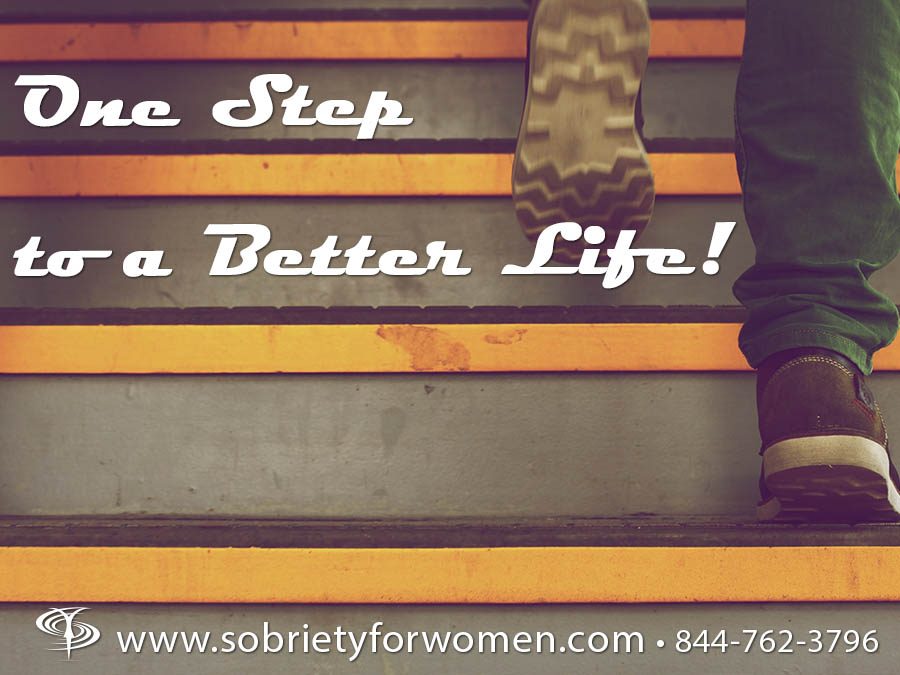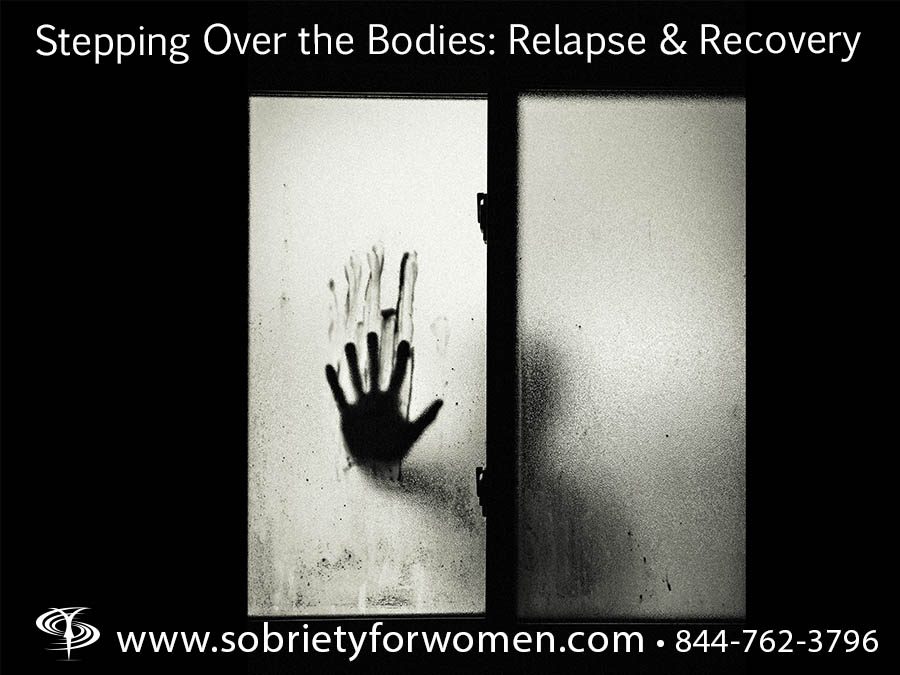
by Sally Rosa | Mar 12, 2015 | Addiction Articles, Sobriety For Women
By Tim Myers
How to Deal with a Relapsing Roommate
The number one phone call us people in recovery get goes a little something like this – “my roommate is using…what do I do?” This happens every day in recovery communities like Delray Beach and, if you’re living with a recovering alcoholic, it can 100% happen to you!

If three people move into an apartment, one of them will most likely use. Those are the facts. I’m not being pessimistic, just realistic. So, for all of you out there who may find yourself in this predicament, here’s a handy guide.
If your roommate is drinking, you should…
STEP ONE: Have a House Meeting
Confront your roommate together, never one on one.
Bring along someone with more time than you and someone who’s been in this situation before. Ask your roommate if they’ve been using. Point out several things that you’ve noticed about their behavior that makes you believe this.
If the deny it, you can ask them to take a drug test. You can pick these up at any local drug store. Once you have confirmed that they are using, move to step two.
STEP TWO: KICK THEM OUT!
“I can’t do that, they’ll have no where to go!” or “I can’t do that we have rent to pay.” These are poor excuses to kick someone out.
100% of the time the situation gets 100% worse if you don’t make the using roommate leave. Never ever has it worked out. Never.
Tell them they can’t live here anymore and they have to leave right away. Now, you don’t have to be a jerk about it. They’re sick and suffering, so be compassionate and helpful. You can do this in step three.
If your roommate is accepting help and wants to be sober move on to steps three to five. If not, stay away. Ask them to leave, call the cops if they won’t, and above all else, keep you and your home safe.
STEP THREE: Help Them Find a Halfway House
Your relapsing roommate is broken and scared right now. Help them get on the phone and help them find a place to stay. There are many halfway houses and many will work with your roommate on payments if they have a job. Once you have a place that your roommate has committed to, move on to step four.
STEP FOUR: Take Them To A Meeting
By taking them to a meeting you’re showing your roommate that you still care about them and their recovery. They’ll remember this and hopefully they’ll do the same thing for another person if the situation arises.
This will also put them in a good mood and get them back on the right path before they even step foot in the halfway house.
STEP FIVE: PRAY!
This is the most important step because it’s showing God that you care for your friend and that you’re grateful that you’re still sober.
Take this time to reflect on all the blessings in your life and ask for help for your roommate. In trying times like these, it’s easy to forget to pray, but praying is probably why you’ve stayed sober. It’s probably what your roommate should have been doing.

by Sally Rosa | Feb 9, 2015 | Addiction Articles, Recovery
Relapse Isn’t Mandatory
I recently stumbled across an amazing article on Huffington Post. It was an examination of relapse, recovery, and how normalizing relapse doesn’t benefit anyone – addict or family.

The author, Candace Plattor, is a clinical counselor and an individual in long-term recovery. She’s been sober for over twenty-seven years! That’s pretty impressive! She’s been sober for longer than I’ve been alive! Rock on, Candace!
I found her essay moving because it speaks to something that any woman, or any man for that matter, in recovery can attest to – the prevalence of relapse and the increasingly relaxed attitude surrounding it.
Now don’t get me wrong, relapse happens and we should treat those who slip with love and compassion. Lord knows I’ve relapsed before. If those in recovery hadn’t reached out and offered me a hand back up, I don’t know if I’d be here today.
That being said, I think Candace makes some good points. I think she’s offering a new way of thinking (which is really a throwback to an old way!) about relapse, recovery, and the struggle to stay sober one day at a time.
The Power of Willingness
One of the first points Candace makes, and something I’ve experienced firsthand, is that we need a great deal of willingness to get and stay sober. I can attest this is absolutely true! What’s more, I bet most of you reading can attest to the same thing.
I needed the willingness to check myself into treatment. I needed the willingness to get a sponsor. I needed the willingness to work the twelve-steps honestly and thoroughly. I needed the willingness to face my issues and work on them. I needed the willingness for a million other things as well.
Candace writes, “A huge part of that choice to get help and stay in recovery was that I had to be willing to learn how to face a life that wasn’t very pleasant without the use of mind-altering drugs” (Huffington Post).
That willingness didn’t come easy! It was only when everything else, including drugs and booze, had stopped working that I found it. I know I lacked any level of willingness in some of my halfhearted early attempts at sobriety.
Guess what happened during those attempts? I relapsed. I returned to opiates and alcohol because I wasn’t willing to do the work. I wasn’t willing to face the pain. Were my relapses required, though? Were they necessary parts of my sobriety?
Absolutely not!
Sobriety Isn’t Easy but It Isn’t Impossible
Another point that Candace touches on is how sobriety can oftentimes be incredibly difficult. Once again, raise your hand if you’ve experienced that yourself. Everyone’s hand is up? That’s what I thought!
While Candace struggles with Crohn’s Disease, I’ve struggled with mental health issues like anxiety and depression. I think any alcoholic, if they take a moment to reflect, can come up with a handful of serious issues they’ve struggled with in sobriety.
Now, oftentimes these struggles can be easy excuses for relapse. They can be an easy way to avoid facing the pain mentioned above. Fortunately, they don’t have to be.
Candace writes,
“That was an amazingly difficult time in my life, but the inner strength and self-respect I gained from that experience…have made me the person I am today, a person who’s proud of herself and knows she can handle the tough times. I’m grateful for that, and I’d love it if we could all feel that way about ourselves” (Huffington Post).
I love that! It’s so true that we gain strength, faith, and inner-love from facing and overcoming the challenges of life. It’s sort of like that saying “if you want self-esteem, do esteem-able acts.” If you want inner-strength, flex your God-muscle and face your demons!
Relapse is a Choice
Something I personally tend to forget is the simple fact that, for someone who’s gone through the steps, relapse is a choice. It’s nothing more and nothing less. For someone who’s had the obsession to drug and drink removed, picking up a drug or a drink is a conscious choice.
In her essay, Candace touches on this. She says,
“It’s absolutely up to the addict, whichever way they go in terms of staying abstinent or not — millions of clean and sober addicts show us every day that relapse is NOT a normal, expected part of recovery…” (Huffington Post).
Now, it’s important to remember this isn’t true for women who haven’t had the obsession removed! In early-sobriety, relapse often happens because the mental obsession returns and we have to drink. It’s not a choice, but rather a manifestation of the “strange mental blank spots” the book talks about.

Once we’ve gone through the steps, though, and had a spiritual awakening, relapse becomes 100% a choice. It’s at this point that personal responsibility and culpability enter the picture. It’s at this point that being of service to those who need it becomes of the utmost importance!
What do you think about relapse not being a required part of recovery? Let us know on social media!

by A Women in Sobriety | Feb 2, 2015 | Addiction Articles, Recovery
Attitude is Everything
Want to know when in my life I was happiest? The answer might surprise you! I was happiest in early-sobriety while living in a halfway house.

Now don’t get me wrong, my life since getting sober has been nothing short of amazing. I’ve gotten to experience all sorts of things I never thought would happen. I’ve been blessed with friends, family, significant others, and a wonderful God. I’ve gotten to travel, to have amazing jobs, and to grow as a woman.
In other words, I truly have a life beyond my wildest dreams!
Still, there was something about early-sobriety and the simplicity of life that stands out. There was something about that period that makes me gooey with nostalgia. Life was simple, easy, and above all else, amazing!
I think it had something to do with my attitude!
Making the Most of What You Have
My attitude was what made this period in my life so wonderful. I was practicing gratitude like never before. I was taking unselfish and constructive action on a daily basis. I was giving instead of taking. Guess what? By giving, I received more than I ever imagined.
Now, there’s a whole debate (which I’ve participated in!) about how gratitude is steeped in action. Let’s set that aside for a moment and simply look at how gratitude changed my life!
The True Meaning of Gratitude
I was nineteen years old and living successfully on my own for the first time ever. I was coming off a one-year relapse. Prior to that year, I’d had almost six months sober. Prior to those six months, I’d been drugging and drinking for seven years.
So, being sober alone was enough to instill gratitude and humility in little old me! I was so grateful for a bed to sleep on, a pillow to lay my head on, and an air conditioner to keep me cool. I was so grateful for my roommates, friends who would answer their phones, and the ability to set past mistakes right. I was so grateful for my sponsor, my sober supports, and my new twelve-step family!
I was even grateful for my responsibilities. That’s something I tend to forget today. I was so excited to do step-work, to go to my job, and to go to school. Today, these things sometimes seem like a chore. In early-sobriety, though, they were blessings of the highest order.
I think that’s why I look back at this period as the happiest in my life. Now, I’d again like to say that my life today is beyond my wildest dreams. It’s truly amazing. Still, there’s always going to be a special place in my heart for those early days spent living in a halfway house.
There’s always going to be a special place in my heart for meeting with my sponsor, scared out of my mind to be completely honest, and walking away feeling light and free. That’s something special, my friends, it really is.

by Fiona Stockard | Jan 28, 2015 | Addiction Articles, Recovery
What Do I Do If a Loved One Relapses?
Relapse is a part of recovery. It’s an unfortunate part, but a part nonetheless. It’s like the sky being blue, grass being green, or Taco Bell being the tastiest fast food. Addicts and alcoholics relapse. It’s that simple.
So, what happens when someone close to us relapses? It could be a family member, friend, roommate, significant other, sober support, or even a sponsor. What happens to us when they pick up that drink? What are our options?

This is a selfish way of looking at things, but an absolutely vital one to preserve our own sobriety! This goes double if you’re in early-sobriety when a loved one relapses.
What do we do? Find some of my (hard won) advice below. I hope it helps!
Limit Contact
This one’s kind of obvious, but limit your contact with a relapsing loved one! Now, this might be hard depending on who it is that decided to pick up a drink or drug. It’s one thing to limit contact with a friend, it’s a whole other thing to limit contact with a significant other!
If it’s at all possible, don’t spend as much time with them. See them only in social settings. Don’t hang out with them late into the night. Take these general precautions to protect your own sobriety!
These might sound harsh, but remember – it’s easier for a relapsing loved one to take us out, than it is for us to get them back into the rooms.
Don’t See Them Alone
This goes along with limiting contact. Don’t hang out with your relapsing loved one alone!
I know what you’re thinking. “But So and So loves me! He or she would never use around me. I’ll be fine!” Guess what? You’re probably right. 99% of the time you will be fine. It’s that 1% that makes seeing a relapsing loved one alone dangerous.
Remember, you’re dealing with the disease of addiction and alcoholism. It overwhelms us all. It doesn’t matter how much your loved one cares about you. If they’re drinking and drugging, all that love goes out the window. That’s just how it is.
Seek Professional Help
Seeking professional help can take a few different forms depending on who in your life relapsed.
Let’s say it’s your significant other. Well, then seeking professional help could include going to marriage therapy, going to couples therapy, joining a support group like Al-Anon, or simply placing your loved one in treatment.
Let’s say it’s a friend that relapsed. If that’s the case, seeking professional help could take the form of attending a support group, going to more twelve-step meetings, or even planning an intervention (with an interventionist, of course!).
Let’s say it’s a family member. In this case, maybe you should attend family therapy. Whatever form it takes, don’t be afraid to turn to the professionals. After all, there’s a reason they’re called professionals!
Encourage Them!
This might also be kind of common sense, but I see it get neglected a lot! Remember, your loved one is in a lot of emotional, mental, and spiritual pain. They’re drinking, using, and engaging in harmful and selfish behavior. They could use some kind words!
So, if someone close to you starts drinking or drugging, tell them some of the things your sponsor tells you. It’ll help more than you know.
Pray For Them

And here we’ve reached the most important thing (in my humble opinion anyway!) you can do for a loved one who’s relapsing. Pray for them! It’s that simple.
Alcoholism and addiction are diseases of powerlessness. Addicts and alcoholics are powerless over drugs and booze. They’re powerless to say no. They need something more powerful than they are to help.
That’s where a God of our own understanding enters the picture. This God is much more powerful than any drug or drink.
So, say a prayer for your loved one. It’s one of the simplest, and most powerful, things we can do!









